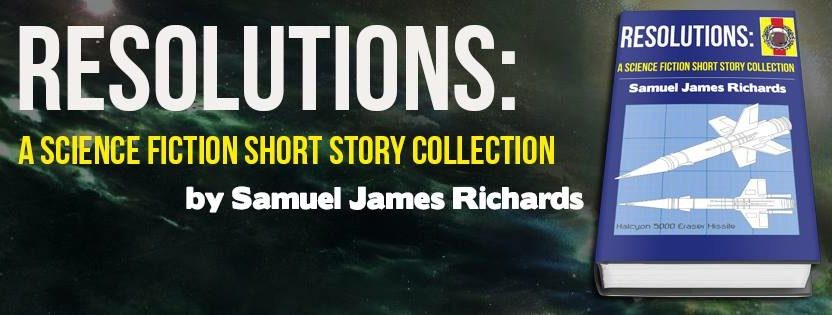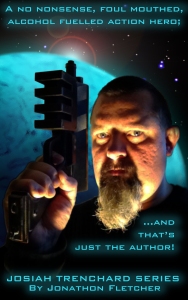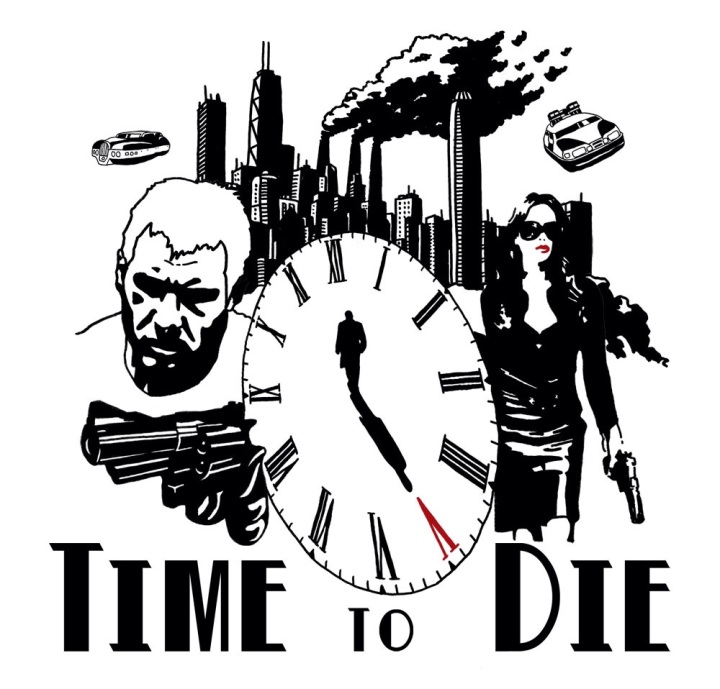 Serge blinked as the rough hessian blindfold was tugged away from his eyes. His heart hammered in his chest, plummeling away against his ribcage. His eyes darted around the jagged rocky cavern. Mining gear lay strewn around, large claw-like plasma cutters, disintigration bins, and thick rolls of cable. Lighting blocks punched into the rocks above shone harshly, giving the kind of illumination that cultivates an ache behind the eyes.
Serge blinked as the rough hessian blindfold was tugged away from his eyes. His heart hammered in his chest, plummeling away against his ribcage. His eyes darted around the jagged rocky cavern. Mining gear lay strewn around, large claw-like plasma cutters, disintigration bins, and thick rolls of cable. Lighting blocks punched into the rocks above shone harshly, giving the kind of illumination that cultivates an ache behind the eyes.
A hand shoved him forward. Serge stumbled, almost falling. Gruff laughter issued around him. Serge recognised a couple of faces. A man wearing a black cap and dark glasses; he was the pilot. The squat-looking woman in a faded red shirt; Serge was sure she was the one who thrust the blindfold onto his head. They, and all their companions, bristled with weaponry; hand guns, pulsers, assault rifles. They looked like they knew how to use them.
Serge stood motionless as a tripod was set up opposite him, a camera attached to it, the lens peering greedily at him.
The crowd stepped apart as a tall bearded man entered the cavern. He walked up to Serge, eying him with contempt. He uttered something in a language Serge didn’t understand, drawing out a few dry chuckles from the observers.
Serge cleared his throat.
“I… I don’t understand…”
The man burst into hearty laughter, clapping Serge on the shoulder, causing him to flinch away.
“Just play, just fun,” the bearded man said in broken English. “My name Beerik. You?”
“Serge. Serge Lillian.”
Beerik gestured with a flick of his head. Two of the militants moved into the darkness at the edge of the room, picking up a dark bundle between them.
“Big money,” said Beerik. “Big money for this.”
“Yes, lots of money,” said Serge.
The militants dragged the bundle closer. As they entered the light, Serge could see that it was a man, a skeletal figure clad in a stained orange smock.
Serge let himself be positioned beside the man in the smock. He felt giddy; could he do this? He glanced at the man beside him. His face was gaunt, eyes sunken into hollows. Serge pressed down the faint shred of pity he felt for him, rolling a deep wave over anger over it. Anger for his father. Anger for East Tarra. Anger for the fires and the death.
Beerik reached inside his jacket and removed a crumpled sheet of paper and a black balaclava.
“You ready, Serge Lillian?”
Serge pulled the balaclava over his head.
“I’m ready.”
The man in the smock was made to kneel. The light began to blink on the camera. Showtime.
“Greetings to the faithful brothers and sisters of the Dyon Nation,” Serge began, reading from the crumpled script. “Though we are scattered by oppression, our strength remains.
“Today, the Dyon Liberation Army brings its enemies a sign of our resolve. Today, we bring you a judgement. For crimes against the Dyon Nation, a price of recompense must be paid.”
The man in the smock shivers and shakes uncontrollably, fear etched on his face.
“It is my honour as a proud benefactor to carry out this act of righteous justice.” Serge’s voice swells with determination. “I, like many others, have chosen to share my wealth with the cause of my people. Together, we will build the means of our liberation.”
One of the militants, also disguised by a balaclava, steps into shot and hands Serge a blade.
“It is my honour to be chosen in recognition of my patronage.”
Steadying his hand, Serge positions the blade at the man’s neck.
“It is my honour to fulfil this reward.”
Banker who financed 9/11 mastermind now funding terrorists in Syria and Iraq – The Telegraph
Who’s Funding ISIS? Wealthy Gulf ‘Angel Investors,’ Officials Say – NBC News







 The time has almost arrived for Resolutions, my science fiction short story collection, to hit digital bookshelves. I don’t want to be too specific at this point, as a spanner could easily enter the works, but I am hoping to have the collection available to purchase and download by the end of next week (Friday 26th Sept). I’ve never electronically published a book before, so there could be some unknown hurdles still in my pathway, but I’ll keep you posted if there is a delay.
The time has almost arrived for Resolutions, my science fiction short story collection, to hit digital bookshelves. I don’t want to be too specific at this point, as a spanner could easily enter the works, but I am hoping to have the collection available to purchase and download by the end of next week (Friday 26th Sept). I’ve never electronically published a book before, so there could be some unknown hurdles still in my pathway, but I’ll keep you posted if there is a delay.